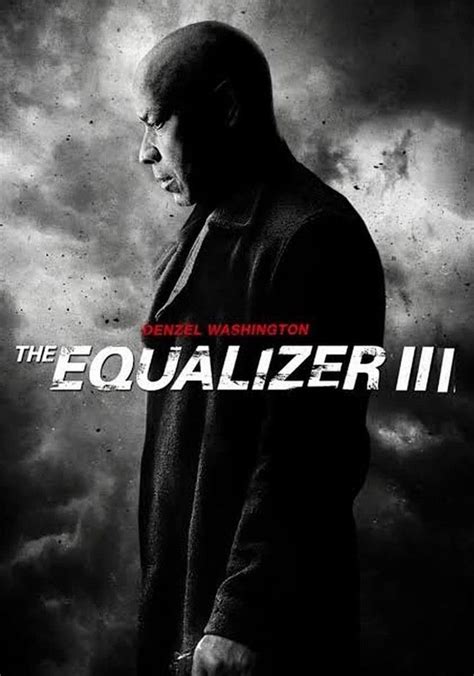
A TikTok influencer’s emotional reaction to the potential banning of the platform in the United States has gone viral after she posted a video of herself crying in front of TikTok’s headquarters. The influencer, known as @ladybug_sd, expressed fears about losing her livelihood if the app is banned, sparking a wave of reactions across social media.
The video, which has garnered millions of views, shows @ladybug_sd visibly upset and pleading with lawmakers to reconsider the ban. “I’m just trying to make content. I’m just trying to provide for my family,” she says in the video, her voice choked with emotion. “I don’t want to lose my job.” Her raw display of vulnerability has resonated with many other content creators who rely on TikTok for income and visibility.
The potential ban stems from concerns about TikTok’s parent company, ByteDance, and its ties to the Chinese government. U.S. lawmakers have raised national security issues, fearing that user data could be accessed or manipulated by the Chinese government. This has led to legislative efforts to restrict or ban TikTok in the United States. The House of Representatives recently passed a bill that would require ByteDance to divest from TikTok or face a ban in U.S. app stores. The bill is now under consideration in the Senate, where its future remains uncertain.
The influencer’s video has amplified the debate surrounding the ban, highlighting the economic impact it could have on content creators. TikTok has become a major platform for creators to build audiences, generate income through brand partnerships, and promote their own businesses. A ban could disrupt this ecosystem, leaving many creators scrambling for alternative platforms.
Supporters of the ban argue that national security concerns outweigh the economic impact. They point to China’s national security laws, which could compel ByteDance to cooperate with Chinese intelligence agencies. Critics of the ban, however, argue that it would violate free speech principles and stifle innovation. They also argue that there are less restrictive ways to address national security concerns, such as data security agreements and independent audits.
TikTok itself has denied any wrongdoing and has stated that it protects user data. The company has invested heavily in data security measures and has partnered with U.S.-based companies to ensure data is stored and processed securely. Despite these efforts, concerns persist among lawmakers and security experts.
The emotional response from @ladybug_sd underscores the significant role TikTok plays in the lives of many content creators. As the debate over the ban continues, it is likely that more influencers will voice their concerns and advocate for the platform. The outcome of the legislative efforts will have far-reaching consequences for the future of TikTok in the United States.
The Broader Context: National Security Concerns and Legislative Action
The push to ban TikTok in the United States is not a new phenomenon, but it has gained significant momentum in recent months. The primary driver behind this effort is the apprehension that TikTok’s parent company, ByteDance, could be compelled by the Chinese government to share user data or manipulate the content displayed on the platform.
U.S. national security laws are at the heart of these concerns. These laws grant the Chinese government broad authority to compel domestic companies to assist with intelligence gathering. Critics argue that this could allow the Chinese government to access sensitive user data, including location information, browsing history, and personal communications. This data could then be used for espionage, surveillance, or influence operations.
Another concern is the potential for TikTok’s algorithm to be manipulated to promote pro-China propaganda or to suppress content critical of the Chinese government. This could be used to influence public opinion and undermine democratic institutions.
In response to these concerns, lawmakers have introduced several bills aimed at restricting or banning TikTok. One of the most prominent of these is the RESTRICT Act, which would give the U.S. Department of Commerce broad authority to review and potentially ban foreign technology products that pose a national security risk.
The House of Representatives recently passed a bill specifically targeting TikTok. This bill would require ByteDance to divest from TikTok within a certain timeframe or face a ban in U.S. app stores. The bill has garnered bipartisan support, reflecting the widespread concern about TikTok’s potential national security implications.
The bill is now under consideration in the Senate, where its future remains uncertain. Some senators have expressed concerns about the potential impact of the ban on free speech and the economy. Others remain committed to addressing the national security risks posed by TikTok.
TikTok’s Response and Data Security Measures
TikTok has vehemently denied any wrongdoing and has taken steps to address the concerns raised by lawmakers and security experts. The company has emphasized that it stores U.S. user data in the United States and Singapore, and that it does not share user data with the Chinese government.
TikTok has also partnered with U.S.-based companies, such as Oracle, to enhance its data security measures. Oracle is responsible for auditing TikTok’s algorithms and data security protocols to ensure that they meet U.S. standards.
TikTok has also launched a program called “Project Texas,” which aims to further isolate U.S. user data from potential access by ByteDance employees in China. As part of this program, all U.S. user data is routed through Oracle’s cloud infrastructure.
Despite these efforts, concerns persist among lawmakers and security experts. Some argue that the Chinese government could still compel ByteDance to share data, regardless of where it is stored. Others argue that the potential for algorithm manipulation remains a significant risk.
The Economic Impact of a TikTok Ban
A ban on TikTok could have significant economic consequences for content creators, businesses, and the broader digital economy. TikTok has become a major platform for creators to build audiences, generate income through brand partnerships, and promote their own businesses.
Many content creators rely on TikTok as their primary source of income. A ban could disrupt this ecosystem, leaving many creators scrambling for alternative platforms. Some creators may be able to migrate their audiences to other platforms, but others may struggle to rebuild their following.
Businesses also use TikTok to reach new customers and promote their products and services. A ban could limit their ability to reach this audience, potentially impacting their sales and revenue.
In addition to the direct economic impact, a ban on TikTok could also have broader implications for the digital economy. It could stifle innovation and limit consumer choice. It could also set a precedent for other countries to restrict access to foreign technology products.
The Debate Over Free Speech and Censorship
Critics of the ban argue that it would violate free speech principles and stifle innovation. They argue that TikTok is a platform for creative expression and that a ban would limit the ability of users to share their ideas and opinions.
They also argue that the ban would set a dangerous precedent for government censorship. If the government can ban TikTok based on national security concerns, they argue, it could also ban other platforms that it deems to be undesirable.
Supporters of the ban argue that national security concerns outweigh free speech considerations. They argue that the potential for the Chinese government to access user data or manipulate the algorithm poses a serious threat to national security.
They also argue that TikTok is not the only platform for creative expression and that users can find alternative platforms to share their ideas and opinions.
Alternative Platforms and the Future of Content Creation
If TikTok is banned in the United States, content creators will need to find alternative platforms to reach their audiences. Some popular alternatives include Instagram Reels, YouTube Shorts, and Snapchat Spotlight.
These platforms offer similar features to TikTok, allowing creators to share short-form videos and engage with their followers. However, they also have their own unique characteristics and algorithms.
It is unclear whether content creators will be able to seamlessly migrate their audiences from TikTok to these alternative platforms. Some creators may find it difficult to replicate their success on other platforms.
The ban could also lead to the emergence of new platforms that cater specifically to content creators who are looking for alternatives to TikTok.
Legal Challenges and Potential Outcomes
If the bill targeting TikTok passes the Senate and is signed into law, it is likely to face legal challenges. TikTok could argue that the ban violates its First Amendment rights and that it is discriminatory.
The legal challenges could be lengthy and complex. It is unclear whether TikTok would be successful in overturning the ban in court.
If the ban is upheld, TikTok would be required to divest from ByteDance within a certain timeframe or face a ban in U.S. app stores. This could lead to a significant disruption in the digital economy and could have far-reaching consequences for content creators, businesses, and consumers.
The Role of Public Opinion
Public opinion will likely play a significant role in the debate over the TikTok ban. If the public is strongly opposed to the ban, it could put pressure on lawmakers to reconsider their position.
However, if the public is concerned about the national security risks posed by TikTok, it could embolden lawmakers to move forward with the ban.
The influencer’s video highlights the potential for content creators to mobilize public opinion and influence the debate. As the debate over the ban continues, it is likely that more influencers will voice their concerns and advocate for the platform.
The International Implications
The decision to ban TikTok in the United States could have significant international implications. Other countries may be tempted to follow suit, restricting access to foreign technology products based on national security concerns.
This could lead to a fragmentation of the global digital economy and could make it more difficult for companies to operate across borders.
The TikTok ban could also exacerbate tensions between the United States and China. China has accused the United States of unfairly targeting Chinese companies and has threatened to retaliate if the ban is implemented.
The Future of Cross-Border Data Flows
The debate over TikTok highlights the growing tension between national security and the free flow of data across borders. As technology becomes more integrated into our lives, governments are increasingly concerned about the potential for foreign governments to access user data and manipulate the digital landscape.
This has led to calls for greater regulation of cross-border data flows and for the development of new international norms to govern the digital economy. The outcome of the TikTok debate could have a significant impact on the future of cross-border data flows and the global digital economy.
FAQ
1. Why is TikTok facing a potential ban in the United States?
The potential ban stems from concerns that TikTok’s parent company, ByteDance, has close ties to the Chinese government. U.S. lawmakers fear that the Chinese government could compel ByteDance to share user data, manipulate content, or conduct espionage through the platform, posing a national security risk. “U.S. national security laws grant the Chinese government broad authority to compel domestic companies to assist with intelligence gathering,” posing potential risks to user data.
2. What are the potential consequences of a TikTok ban for content creators?
A TikTok ban could have severe economic consequences for content creators who rely on the platform for income and audience reach. Many creators generate revenue through brand partnerships, advertising, and merchandise sales on TikTok. A ban could disrupt their livelihoods and force them to rebuild their audience on alternative platforms. “Many content creators rely on TikTok as their primary source of income. A ban could disrupt this ecosystem, leaving many creators scrambling for alternative platforms.”
3. What is TikTok doing to address concerns about data security?
TikTok has taken several steps to address data security concerns, including storing U.S. user data in the United States and Singapore, partnering with U.S.-based companies like Oracle to audit its algorithms and data security protocols, and launching “Project Texas” to further isolate U.S. user data from potential access by ByteDance employees in China. “TikTok has emphasized that it stores U.S. user data in the United States and Singapore, and that it does not share user data with the Chinese government.”
4. What are some alternative platforms that content creators could use if TikTok is banned?
If TikTok is banned, content creators could migrate to alternative platforms like Instagram Reels, YouTube Shorts, Snapchat Spotlight, and Triller. These platforms offer similar short-form video features and opportunities for audience engagement, although each has its own unique algorithms and user base. However, whether content creators will be able to seamlessly transition their existing audience base is uncertain.
5. What are the arguments against banning TikTok?
Arguments against banning TikTok include concerns about free speech, potential economic impacts, and the possibility of setting a precedent for government censorship. Critics argue that banning TikTok would violate First Amendment rights, stifle innovation, and limit opportunities for creative expression. They also suggest that less restrictive measures, such as data security agreements and independent audits, could address national security concerns without resorting to a complete ban.
Detailed Analysis: Deeper Dive into the TikTok Dilemma
The situation surrounding TikTok and its potential ban in the United States is a complex interplay of national security concerns, economic interests, free speech principles, and international relations. Understanding the nuances of each of these elements is crucial to grasping the full scope of the issue.
National Security: A Legitimate Concern or a Pretext?
The core argument for banning TikTok revolves around the perceived threat to national security. Lawmakers and security experts fear that the Chinese government could leverage its influence over ByteDance to access sensitive user data, spread propaganda, or conduct espionage activities.
The Chinese government’s broad legal authority over domestic companies is a major point of contention. According to China’s National Intelligence Law, organizations and citizens are required to support, assist, and cooperate with state intelligence work. This law, in theory, could compel ByteDance to share data with Chinese intelligence agencies, regardless of where the data is stored.
However, some critics argue that the national security concerns are overblown or used as a pretext for protectionist measures. They point out that other social media platforms also collect vast amounts of user data and that there are ways to mitigate the risks without resorting to a complete ban. These include enhanced data security protocols, independent audits, and data localization requirements.
Furthermore, the argument that TikTok could be used to spread propaganda is not unique to the platform. All social media platforms are susceptible to manipulation and disinformation campaigns. The challenge lies in developing effective strategies to counter these threats without infringing on free speech principles.
Economic Impact: Disruption and Uncertainty
A ban on TikTok would undoubtedly have significant economic consequences. The platform has become a vital source of income for millions of content creators, small businesses, and advertisers.
Content creators who rely on TikTok for their livelihood could face financial hardship if the platform is banned. They would need to rebuild their audience and establish a presence on alternative platforms, which could be a time-consuming and challenging process.
Small businesses that use TikTok to market their products and services could also be affected. They would need to find new ways to reach their target audience, potentially incurring additional marketing costs.
The advertising industry could also experience disruption. TikTok has become a major advertising platform, attracting significant investment from brands seeking to reach younger audiences. A ban could force advertisers to shift their spending to other platforms, potentially impacting their return on investment.
Moreover, a ban on TikTok could send a chilling signal to foreign investors, raising concerns about the stability and predictability of the U.S. market.
Free Speech: A Balancing Act
The debate over TikTok raises fundamental questions about free speech and government censorship. Critics of the ban argue that it would violate the First Amendment rights of users to express themselves and access information.
TikTok has become a platform for diverse voices and creative expression. A ban could silence these voices and limit the ability of users to share their ideas and opinions.
Furthermore, the ban could set a dangerous precedent for government censorship. If the government can ban TikTok based on national security concerns, it could also ban other platforms that it deems to be undesirable, potentially leading to a slippery slope.
However, supporters of the ban argue that national security concerns outweigh free speech considerations. They argue that the potential for the Chinese government to access user data or manipulate the algorithm poses a serious threat to national security.
The courts would likely weigh these competing interests in any legal challenge to the ban, balancing the rights of users to express themselves against the government’s legitimate interest in protecting national security.
International Relations: Geopolitical Tensions
The TikTok debate is also intertwined with broader geopolitical tensions between the United States and China. The ban could be seen as another example of the U.S. government targeting Chinese companies and restricting their access to the U.S. market.
China has accused the United States of unfairly targeting Chinese companies and has threatened to retaliate if the ban is implemented. The ban could further escalate tensions between the two countries and could have negative consequences for trade, investment, and other areas of cooperation.
Furthermore, the ban could encourage other countries to restrict access to foreign technology products, potentially leading to a fragmentation of the global digital economy.
Alternative Solutions: Mitigation Strategies
Instead of a complete ban, some experts have proposed alternative solutions to address the national security concerns associated with TikTok. These include:
- Data localization: Requiring TikTok to store all U.S. user data in the United States, under the supervision of a trusted third party.
- Independent audits: Conducting regular audits of TikTok’s algorithms and data security protocols by independent experts.
- Source code review: Allowing U.S. security experts to review TikTok’s source code to identify potential vulnerabilities.
- Data security agreements: Negotiating data security agreements with China to ensure that U.S. user data is protected.
These mitigation strategies could address the national security concerns without resorting to a complete ban, preserving the economic benefits and free speech values associated with TikTok.
Conclusion: A Decision with Far-Reaching Consequences
The decision on whether to ban TikTok in the United States is a complex one with far-reaching consequences. It involves balancing national security concerns, economic interests, free speech principles, and international relations.
A complete ban would have significant economic and social costs, disrupting the livelihoods of content creators, limiting business opportunities, and potentially stifling creative expression. It could also escalate tensions with China and set a dangerous precedent for government censorship.
However, the national security concerns associated with TikTok are legitimate and must be addressed. Alternative solutions, such as data localization, independent audits, and data security agreements, could mitigate these risks without resorting to a complete ban.
Ultimately, the decision on whether to ban TikTok will require careful consideration of all the competing interests and a commitment to finding a solution that protects national security while preserving economic opportunity and free speech values. It’s a situation that calls for a nuanced and strategic approach, prioritizing data protection and transparency without unnecessarily stifling innovation and creative expression.









